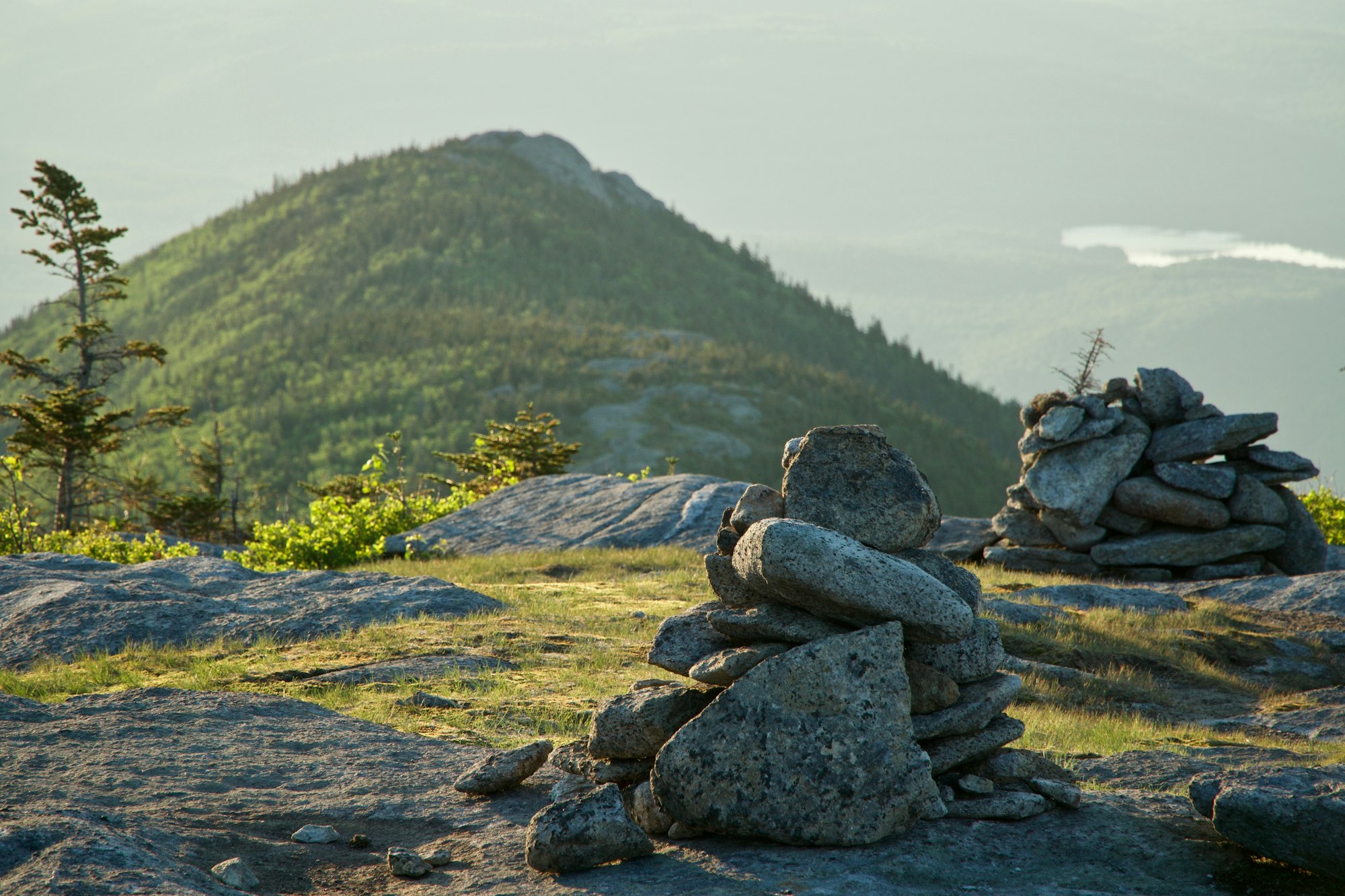Chase Twichell, "Animal Caution"
Mom is in the hospital.

Mom is in the hospital. She's better than she was, but it's still very scary. I don't want to comment too much because there are a lot of unknowns. I'm just grateful at the moment she's lucid enough. I realize this is a grace which could instantly disappear.
Strangely, grief has resulted in me focusing more on my legacy than Mom's. Hers is simple to piece together. She's responsible for a generation of kids reading; her volunteer and service work is exceptional given the constraints she faced; she maintained a household against forces which threatened to destroy it completely. It's easy to say she exemplifies a rare combination of willpower, resilience, and generosity. I'd like to share more with Mom, if given the chance. But how are we even on the same plane of existence? She literally carried me and so many more.
In this spirit, I am reflecting on Chase Twichell's "Animal Caution." Twichell talks about touching cairns belonging to her parents, rising to their level, and then experiencing an "animal caution." That caution demands contemplation. It appears to be a natural wrestling with the concept of legacy, as she gains "sinew and muscle like the brook's / [becomes] a sudden shivering / green-brown flame." Given the number of people I've encountered whose only "goal" is to win the lottery–here I'm thinking not of desperate laborers who need financial security, but a millionaire I knew who blew excessive amounts on tickets–what stuns me is the notion of a natural legacy. Both the Presocratics and addicts of instant gratification would deny that there is anything natural about honor, nobility, or anything we codify into our conventions.
Animal Caution (from Poetry) Chase Twichell Whenever I touch the cairn marking the summit of one of my parents, touch the top stone, an animal caution comes over me, sinew and muscle like the brook’s, a sudden shivering green-brown flame. Soon they will be constellations, and I a small tower of stones.
Twichell's "animal caution" proceeds from a combination of effort and ritual. "Whenever I touch the cairn / marking the summit / of one of my parents, / touch the top stone, / an animal caution comes over me[.]" These lines do not lack ambiguity. On the one hand, they can be read fairly literally. Her parents marked a trail they may have forged. She followed–no mean feat!–and found what they had created. The territory of our traditions must be rediscovered. You put the effort into the ritual and obtain a deep sort of memory. You don't just feel what you thought about; you feel and think like those before you did.
That reading looks consistent with the poem's ending. But what about those who should forge a new path? Where tradition is met but it remains a challenge? I'm curious about our parents' accomplishments being a trap, e.g. when someone not fit for medicine wants to make a renowned doctor proud. I believe these lines speak to that, too, as the key term in "animal caution" is caution. The growth and development of a human being is unique, and maybe caution emerges in order to protect one's individuality. We only succeed in a smaller sense when successfully doing the same thing as before.
The tension contained in the first five lines comes from the question of what it means to master one's nature. Is it about living up to what's within? What we are encouraged to be? Or is it something entirely different? The caution resides in strength, but it is the strength of the brook, echoing the Heraclitean flux which destroys, creates, and unceasingly changes. "[S]inew and muscle like the brook's" implies the strength inherent to flexibility. "[A] sudden shivering / green-brown flame" holds incredible riches. Like a tree, one grows, but there is shaking and shock. This isn't the growth one's parents intended; all parents hope you have it a bit easier than they did. You are less animal and more animal, both at once. You are a plant on fire, a bush perpetually burning.
What is this "animal caution?" Why does it mix human and animal and plant? Divinity and the materiality of rocks? Why is one the fire itself, a fire that does not consume? What we're witnessing is the naturalness of legend. Heidegger might say this is where the Presocratics as poets shined as the truest of philosophers. Their introduction of the distinction between nature and convention was a great mistake, perhaps. Great people made this mistake and attacked their own legend. Their questioning wasn't trivial, though it led the wrong direction. Why was it so wrong to bluntly assert that legends depend on norms? On codified traditions?
Right now, I'm partial to the notion of some kind of subterranean greatness, a concept not unlike an intuition about what constitutes life. "Soon they will be constellations / and I a small tower of stones" acts for me, at this moment, as a Biblical seal. I have to describe my mother. The words I use can't help but create a legend. They are part of teaching myself to let go. To let people be constellations, to be seemingly inanimate but divine. I should note that Mom took great care of the garden at our family home. I remember the pear tree, in winter, frosted and brown and shivering. And I remember it full of fruit, a bright indefatigable green in spring and summer. When I visited home the last few days, the garden was overgrown with nothing blooming, but there was a rabbit who was present nearly every time I went out. He was understandably cautious.
